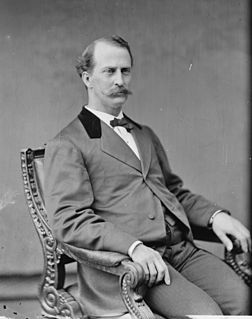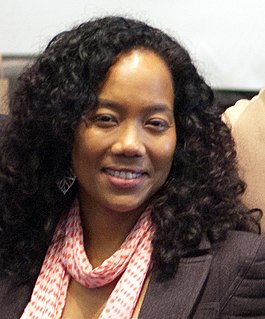A Quote by Peter Drucker
What is the manager's job? It is to direct the resources and the efforts of the business toward opportunities for economically significant results. This sounds trite - and it is. But every analysis of actual allocation of resources and efforts in business that I have ever seen or made showed clearly that the bulk of time, work, attention, and money first goes to problems rather than to opportunities, and, secondly, to areas where even extraordinarily successful performance will have minimal impact on results.
Quote Topics
Actual
Allocation
Analysis
Areas
Attention
Bulk
Business
Clearly
Direct
Economically
Efforts
Even
Ever
Every
Extraordinarily
First
Goes
Impact
Job
Made
Manager
Minimal
Money
Opportunities
Performance
Problems
Rather
Resources
Results
Seen
Significant
Sounds
Successful
Than
Time
Toward
Trite
Will
Work
Related Quotes
Hackman's paradox: Groups have natural advantages: they have more resources than individuals; greater diversity of resources; more flexibility in deploying the resources; many opportunities for collective learning; and, the potential for synergy. Yet studies show that their actual performance often is subpar relative to "nominal" groups (i.e. individuals given the same task but their results are pooled.) The two most common reasons: groups are assigned work that is better done by individuals or are structured in ways that cap their full potential.
The opportunities and threats existing in any situation always exceed the resources needed to exploit the opportunities or avoid the threats. Thus, strategy is essentially a problem of allocating resources. If strategy is to be successful, it must allocate superior resources against a decisive opportunity.
When we work so hard at our preparations for Christmas, we often feel cheated and frustrated when others fail to notice the results of our efforts. We need to ask ourselves why we are doing the things we choose to do. If love motivates us-love for our families, for our neighbors - then we are free to simply enjoy the actual process of what we do, rather than requiring the approval and admiration of others for the results of our labors.
The business schools could do a better job teaching face-to-face management, the actual work of organizing and helping along the efforts of others in the organization. The more quantitative disciplines have gotten more attention, often more research dollars. Areas like organizational science or, even mushier, leadership have had more trouble settling on what it's important to teach, and how. It's rather like strategy itself, which as I argue in the book, has had trouble through most of its history figuring out how to incorporate people, their motivation and ability, into its calculations.
The court has had to take a hard look at our resources and make difficult decisions balancing competing demands for resources. While our current allocation of resources to the Twin Peaks Court may not be ideal, it is an appropriate allocation when all factors are considered. While I realize this will be disappointing news to you, I can assure you the matter was given serious thought before a decision was made.
People, materials, facilities, money, and time are the resources available to us for conducting our business. By applying our skills, we turn these resources into useful products and services. If we do a good job, customers pay us more for our products than the sum of our costs in producing and distributing them. This difference, our profit, represents the value we add to the resources we utilize.
As eternity is longer than time, as mind is stronger than matter, as thought is swifter than the wind, as genius is more potent than gold, so will the results of well-directed labors toward the development of man's higher faculties ever outweigh a thousand fold any estimate in the currency of commerce, which man can put upon such efforts.
It is management's job to direct the efforts of all components toward the aim of the system. The first step is clarification: everyone in the organization must understand the aim of the system, and how to direct his efforts toward it. Everyone must understand the damage and loss to the whole organization from a team that seeks to become a selfish, independent, profit center.
We wanted to see how access to care can be expanded and service quality can be improved when one uses a participatory approach to program development. We showed that major changes become possible if you work in a participatory manner, listen to local people, diagnose what the problems are, provide training and identify where there are opportunities for mobilizing local resources to take action. In time leaders from other municipalities expressed interest in replication and the project succeeded in expanding innovations to three other areas.




































